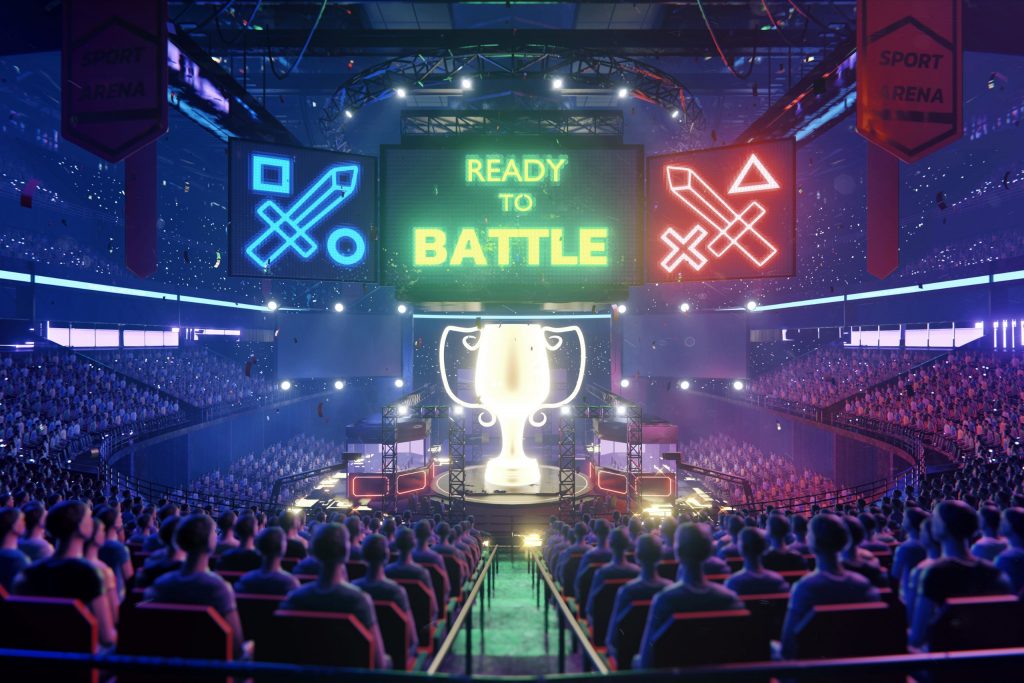Recently, e-sports have grown really quickly. They used to only be popular in a few places, but now they’re popular all over the country. E-sports are appealing to athletes and investors because they are becoming more famous, have bigger prize pools than traditional sports, and have marketing deals worth billions of dollars. Lots of people like professional games. There are big events that happen in real life, and millions of people watch shows online. These tools make this trend stronger and give people new ways to meet and talk to each other.
E-sports are also fun to watch because they change how games are made and sold. E-sports are a new way to sell games. Games pay for places where people can fight so that people will join groups and keep coming back. Development of professional gaming has also incorporated sports psychology, coaching, and training facilities into gaming. Esports is a basic shift in how video games are regarded, marketed, and used, therefore verifying their position as cornerstone of modern entertainment.
Esports as a Global Entertainment Powerhouse
Rising as a global entertainment powerhouse, esports captivates millions of gamers all over. With live events filling large arenas and an exponential increase in online watching, esports has evolved into a powerful alternative for traditional sports. Major events such The International and the League of Legends World Championship draw large crowds, both in-person and online, often on par with the attendance for more established sports events.
Large investments from sponsors and media companies help to explain this rise because games can attract younger people. The creative quality of e-sports events has now reached professional levels, which makes the experience better for fans. E-sports have changed how people enjoy entertainment and given content creators, analysts, and players new job opportunities.
Also, there are more and more similarities between games and traditional sports, especially when it comes to how fans participate and how much money is made. As e-sports become more famous, it’s clear that they’re having an effect on the entertainment industry. This proves that they are a real form of competition and fun.

Driving Innovation in Game Development
Esports has completely changed the way competitive games are made by putting more emphasis on tactics and balance. A well-balanced game is important for keeping the competition scene going, so game makers are always changing the rules and skills of characters to make sure everything is fair.
A lot of what happens with updates and fixes for popular e-sports games is based on what players say. Developers use community feedback to improve parts of the game by actively asking for it. This creates a shared environment that improves the quality of the game as a whole.
A lot of games have been made with e-sports in mind, which helps the business come up with new ideas. Games like “League of Legends,” “Overwatch,” and “Dota 2” combine features that make competitive play from the ground up very relevant. This encourages players to come up with new ways to play, create characters, and make strategies.
This focus on esports not only inspires game designers to make fun and fair games, but it also changes the direction of competitive gaming. Because of this, the way games are made is always changing to meet the needs of both buyers and the professional gaming community.
Creating New Career Paths and Opportunities
Broadcasters, trainers, and players can turn their hobby of games into a career through professional esports, which lets them follow their interests. Athletes now fight at high levels and get paid a lot of money and get sponsored, while coaches make plans and lead their teams to win. Commentators make watching more enjoyable by turning game play into interesting stories that draw in more watchers.
As e-sports have grown, so have the jobs of managers, marketers, and event planners. A lot of different types of jobs are being created because companies need skilled workers to run teams, promote events, and handle partnerships.
Esports are good for the economy because they help businesses grow and create jobs. Companies that make content, streaming tools, and game gear have been able to grow thanks to this industry. More and more schools are offering degrees and classes in game management, which is helping the job market grow.
The evolving esports scene not only opens up new career paths for people who play professional games, but it also helps the economy grow by creating many job opportunities and business opportunities.
Building a Global Esports Ecosystem
Esports have changed the way professional games are played by bringing together players, fans, and marketers from all over the world. As global events and leagues like The International and League of Legends World Championship grow, they bring people from all over the world together and give them a way to share an experience. Millions of people watch and play in these events, which proves that esports is a big form of fun.
The growth of social media, internet live outlets, and celebrity culture are also bringing more people into this group. Fans show their love and loyalty to the esports environment by easily connecting with their favorite players and teams.
From now on, it looks like e-sports will do very well. A lot of donations from big companies and more and more support from institutions show that it will be around for a long time. New training programs that focus on esports management and game creation help prepare the next generation for jobs in this rapidly growing field. It’s becoming more and more accepted as a real sport, and e-sports will continue to grow and be a big deal around the world for years to come.

Conclusion
Esports are changing the game industry by making it a highly competitive, spectator-friendly stage that draws millions of people around the world. This creates a lot of job opportunities for players, presenters, and event planners. Its popularity as a form of entertainment has pushed game designers to make games that offer competitive play, community participation, and excitement for sports shows, advertising, and product sales. As e-sports grows and opens the door for new styles and forms that could change the way people play games, the future holds even more creativity and openness. Players, producers, and watchers should welcome these good changes, as the esports ecosystem’s collaborative atmosphere could spark new ideas, help people work together, and ensure the sector’s long-term success. By recognizing the new ideas that e-sports brings, stakeholders may be able to help create a lively environment that not only values competitive games but also makes the experience better for everyone.




